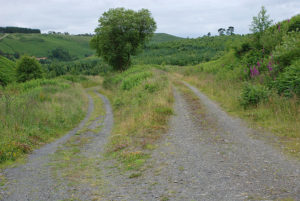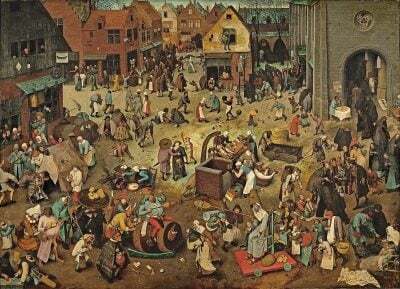Steve Bull's Blog, page 60
April 4, 2024
Today’s Contemplation: Collapse Cometh XCII–Ecological Overshoot and Collapse: Rearranging the Deck Chairs On the Titanic
January 22, 2023 (original posting date)
 Monte Alban, Mexico. (1988) Photo by author.
Monte Alban, Mexico. (1988) Photo by author.Ecological Overshoot and Collapse: Rearranging the Deck Chairs On the Titanic
My comments prompted by two recent articles by The Honest Sorcerer (whose writing I highly recommend).
I believe you’ve hit the nail on the head about the underlying motives behind the geopolitical morass our globe’s ruling elite are creating (and consequential fallout for the hoi polloi): a rearranging of the deck chairs on the Titanic.
Ecological overshoot and peak resources (especially energy) have the socio/psychopathic ruling caste fighting amongst themselves for the vestiges of an ever-shrinking economic pie.
Emboldened and blinded by their ‘successes’ in the past (when there existed much in the way of surplus net energy), they are proceeding full steam ahead with a final blow-off top of resource extraction/exploitation, all-in attempt to consolidate and expand their ‘winnings’; first with the far-off ‘other’, then their domestic political ‘enemies’, and finally with their out-group citizens before they begin to cannibalise their own.
As I have been arguing for some time, the primary motivation of our ruling caste (as has been evidenced throughout pre/history of complex societies) is the control/expansion of the wealth-generating/-extracting systems that provide their revenue streams and thus positions of power and prestige. None of us are safe from the machinations of these people; nor is our environment and the very important ecological systems that serve to support the essentials of life.
Everything will be sacrificed to serve the ends of the ruling caste…bet on it. And things are likely to get much, much worse before the impact of significant diminishing returns — to say little about ecological overshoot — puts a final nail in the coffin of such misguided and insane behaviour.
It’s most interesting how cyclical human pre/history is. Perhaps that’s because of the truism that those who don’t study history are destined to repeat it; either that, or humans simply don’t learn from their mistakes. We are after all a very intelligent species, just not too wise — despite our self-proclaimed taxonomic nomenclature.
Complex societies, empires, civilisations all come and go. They reach a peak of complexity then invariably ‘collapse’. It may take centuries or it may only take a handful or less of generations for this decline, but it always occurs. As Joseph Tainter points out, a population can actually ‘put up with’ significantly diminishing returns on their ‘investments’ in supporting the-powers-that-be for a long time.
The other point Tainter makes, that I believe is relevant to your narrative here, is the aspect of competing polities in this ‘Grand Chessboard’ of geopolitics.
As he argues, such polities tend to get caught up in spiralling competitive investments as they seek to outmaneuver others and evolve greater complexity together. The polities caught up in this competition increasingly experience declining marginal returns and must invest ever-increasing amounts leading to greater economic weakness.
Withdrawing from this spiral or collapsing is not an option without risking being subsumed by a competitor. It is this trap of competition that will continue to drive the pursuit of complexity regardless of human/environmental costs.
Incentives and economic reserves can support this situation for a lengthy period as witnessed by the Roman and Mayan experiences where centuries of diminishing returns were endured.
Ever-increasing costs and ever-decreasing marginal returns typify peer polities in competition. This ends in either domination by one state and a new energy subsidy or collapse of all.
As he concludes: “Collapse, if and when it comes again, will this time be global. No longer can any individual nation collapse. World civilization will disintegrate as a whole. Competitors who evolve as peers collapse in like manner.”
Distilled Disintegration

Photo by Nigel Brown; licensed under Creative Commons
My adult life has run on two diverging tracks. On one, I played science. The other track branched off at age 34—twenty years ago this month—when I started teaching a class on Energy and the Environment. I was eager to piece together our likely energy future: how we would beat climate change and leave fossil fuels in the dust. Against my wishes, this fork presented unexpected turns that took a long time to sink in. The two tracks eventually became too divergent to keep a foot on each. At this stage, I can’t seem to muster the denial it would take to disregard what I have learned so that I might return to the more blissful play-time track.
Much of my writing in the last few years has tried to capture why I have become convinced that modernity can’t last, likely to begin disintegrating in the near-term. In this post, I attempt to distill core elements informing this sense. My apologies if this seems like a rehash. For what it’s worth, the packaging exercise is something that helps me address the question I constantly ask myself: what part of this might I have wrong? It’s a way to take stock.
Growth
I began the Do the Math blog with a pair of posts about why growth can’t last—hitting limits in a historically short time. I also dedicate the first chapters of my textbook to the same topic. In 2022, I synthesized the arguments in an academic paper. This thread should be very familiar by now to my readers, and in fact really ought to be common knowledge. Yet, modernity still operates in a market economy and political system built around a growth expectation. Pension plans and social safety nets (like Social Security and Medicare) become Ponzi schemes unquestionably destined to fail at some point as growth falters.
…click on the above link to read the rest of the article…
No water, no oil: How the parched western provinces could hamper the oilpatch
Water shortages could have devastating effect on oil and gas sector, says new report
 Pumpjacks pull oil from the ground near Three Hills, Alta. Limited water supply could have significant effects on the production of oil and gas, warns a new report. (Kyle Bakx/CBC)
Pumpjacks pull oil from the ground near Three Hills, Alta. Limited water supply could have significant effects on the production of oil and gas, warns a new report. (Kyle Bakx/CBC)Persistent and severe drought conditions across Western Canada could have a devastating effect on the oil and natural gas sector, which has drilling operations in some of the driest areas, according to a new report by Deloitte.
Limited water supply could have significant effects on the production of oil and gas, the report warns, and the timing couldn’t be worse for the industry as many companies are wanting to increase production and drilling with new export pipelines and facilities nearing completion.
The past several years have been parched in parts of Western Canada, but there is extra concern this year because of the below average snowpack in the mountains.
“It’s not going to be as simple to just pipe fresh water in. You may need to move it and truck it to different locations,” said Andrew Botterill, an energy analyst with Deloitte Canada, in an interview with CBC News.
A pipeline to send water to southern Alberta? Ideas float to the surface in times of droughtIn B.C., the provincial energy regulator has warned snowpack levels were only 72 per cent of the historical average.
Trucking in water and recycling water will both result in more “expensive and complicated” operations for companies, he said.
 The Bow River flows through downtown Calgary. Alberta is poised to start negotiations with major water licence holders to strike sharing agreements in three key provincial river basins, including the Bow. (Jeff McIntosh/The Canadian Press)
The Bow River flows through downtown Calgary. Alberta is poised to start negotiations with major water licence holders to strike sharing agreements in three key provincial river basins, including the Bow. (Jeff McIntosh/The Canadian Press)…click on the above link to read the rest of the article…
Spring Traditions and Celebrations: The Past, The Present and the Future of Farming. Caoimhghin Ó Croidheáin

Introduction
Eleanor Parker writes in her book, Winters in the World, that “in Anglo-Saxon poetry winter is often imagined as a season when the earth and human beings are imprisoned, kept captive by the ‘fetters of the frost’. Naturally enough, then, spring is associated with images of liberation and freedom once those fetters are released.” (p. 93) Even the title of the book, Winters in the World, described one’s age, e.g. I have 30 winters in the world, a recognition of the harshness of the winters which one had survived.
Historically, the transition from winter to spring was symbolised by many traditions that reflected the end of difficult times and the coming of the new season of growth and rebirth. These traditions ranged from the celebration of vegetation deities through fertility rites, and the public rituals associated with Carnival/Fat Tuesday (February/March), Lent (February/March), Easter (fires/eggs/hares) (March/ April) and Rogation Days (April). Many rituals were taken over by the Christian church and given new meanings which themselves are now being secularised.
However, since the development of industrial farming in the early twentieth century, the connection between local farming and spring rituals associated with the land have declined and taken on a commercialised aspect separated from nature. We can see this with Carnival and Easter, while Lent fasting is not practised so much anymore.
This is not to say that the ending of the underlying reasons for carnival and the fasting of Lent, i.e. the finishing up of winter stocks and the privation until new crops grew, is such a bad thing, but our dependence on the current global system of industrial farming is worrying at a time when climate change is affecting food production around the world.
…click on the above link to read the rest of the article…
“Wiki-Gate”: Julian Assange Was Framed by the People Who Supported Him

Author’s Note and Update
We must act decisively in support and in solidarity with Julian Assange.
In this regard, we must understand the history: On how Assange was betrayed and misled by those who allegedly supported him.
 In October 2021, the U.S. government began a legal challenge to extradite Julian Assange from the U.K. “to face charges of violating the Espionage Act”.
In October 2021, the U.S. government began a legal challenge to extradite Julian Assange from the U.K. “to face charges of violating the Espionage Act”.
The U.K. Supreme Court turned down Assange’s appeal to “prevent his extradition to the United States”.
On April 20, 2022, a U.K magistrates court formally approved the extradition of Julian Assange to the US “on espionage charges”.
According to Paul C. Roberts:
The most extraordinary thing about Julian Assange is that he is being treated as if he were an American citizen. “Treason” was the original cry, now converted to “espionage.”
There was no espionage. Wikileaks published, and made available to the New York Times, The Guardian, and other media organizations leaked information. The media organizations published the information, just as did Wikileaks, but they are not charged.”
… it will be revealed whether Julian Assange’s appeal in the British courts against being extradited to the US succeeds or not during a two-day hearing, which is scheduled to take place in London on Tuesday and Wednesday [February 20, 21, 2024], The Guardian reported.
In a meeting organized by the Foreign Press Association, his wife, Stella, warned that he could be put on a plane to the US within days if the appeal fails, fearing his death if he is extradited. This is the final chance for Assange to challenge then-former Home Secretary Priti Patel’s decision in June 2022 for an extradition.” (Al Mayadeen)
…click on the above link to read the rest of the article…
From the Recycling Bin to the Landfill: The Major Flaw in Plastic Recycling
People may be putting plastic into recycling bins, but most of it generally ends up in landfills or incinerated.
Yet the demand for more plastic production continues—at a growing cost to human and environmental health—because of the belief that recycling offsets the associated waste and risks. A new report by the Center for Climate Integrity (CCI) alleges that the plastics industry knowingly caused the current plastic waste crisis.
The nonprofit’s report claims that as the plastics industry faced mounting concerns over plastics being incinerated and piling up in landfills, they promoted recycling as a viable solution while dismissing it internally as impractical.“They knew since the 1970s that plastic recycling was not going to be scalable and effective in tackling the plastic waste crisis,” Melissa Valliant, communications director of Beyond Plastics, a nonprofit aiming to reduce single-use plastic use and production, explained to The Epoch Times.
The report asserts that the efforts to sell the false promise of plastic recycling were to avoid restrictive regulations and potential product bans.Plastic Recycling Poses Many ChallengesAccording to the report, one problem with plastic recycling is that it is not technically or economically feasible at scale. Unlike glass and metal, plastic cannot be repeatedly recycled without quickly degrading in quality. Most recyclable plastics can typically only be recycled once. As a result, most recycled plastic eventually ends up in landfills, even if it goes through an additional use cycle as another product.
Between the 1970s and 2015, 91 percent of plastic was either landfilled, burned, or leaked into the environment, according to a global analysis published in Science Advances. Another recent report published by Beyond Plastics estimated that less than 6 percent of plastic in the United States is successfully recycled.…click on the above link to read the rest…
April 3, 2024
The Fraud Inherent in Fractional Reserve Banking
“Our current banking system is not free market capitalism.”
Suppose you bring a fur coat to a dry cleaner and later discover that the owner allowed his wife to wear it before cleaning it (an episode from Seinfeld). Or suppose you gave your car keys to a hotel valet and was told he lent your car to teenagers who took it for a joyride while you were sleeping at the hotel. You would not be too happy and for good reason. When you surrendered your clothes or your car keys, it was a bailment. You retained ownership and gave the clothes or car keys for safekeeping. In no shape or form did you surrender ownership of the items or lend out your property.
Suppose you lived in the eighteenth century and had a hundred ounces of gold. It’s heavy, and you do not live in a safe neighborhood, so you decide to bring it to a goldsmith for safekeeping. In exchange for this gold, the goldsmith gives you ten tickets on which are clearly marked as claims against a total of ten ounces. Now, gold is heavy and burdensome to carry, so in a short period of time, those claims will start circulating in place of gold. This is the creation of near monies. This doesn’t mean you have given up your ownership claims on gold but have instead used a simpler way of transferring ownership on this gold.

Of course, the gold now just sits in the vault, and no one usually comes to get some of it or even checks that it is still there. Quickly, the goldsmith realizes there is an easy, fraudulent way to get rich: just lend out the gold to someone else by creating another ten tickets…
…click on the above link to read the rest of the article…
The Road Worrier
Final preparations for moving the donkey foals are upon me, which has me sorting out the logistics of getting them safely home. The breeder lives less than a kilometre away, which originally made me wonder if they could be walked over but the open road is just too dangerous. If it was just a risk of them getting spooked by a sound it would be fine, but the chance of a deadly encounter with a high-speed car is too high. Instead we will be forced to load them in a horse float to be dragged by a one ton vehicle, pushed along by oil based fuel imported from another continent.
This state of affairs is a relatively recent occurrence. For most of human history the roads were one of many common spaces which were used for a wide variety of activities, not just zooming from one place to another at maximum velocity. They were places where people socialised and worked without constant fear of mortal injury. Sometimes a small section of road will be roped off for people to enjoy for a festival, but that is becoming less common over time with an army of angry motorists waiting to whine about the inconvenience.
Despite all the apparent advances in personal transportation we are really no better off. The average speed of transport in London is the same today as it was centuries ago thanks to the ever-growing congestion. The average daily commute is about the same as it was for urban citizens of the Roman empire, only everything is further apart now since everyone is assumed to have ready access to a personal vehicle. The fuel that goes into cars and the pollution that comes out of them is orders of magnitude more toxic and carcinogenic than glyphosate or endocrine disruptors, but we have built such a car dependent society over the last century that nobody can even contemplate getting rid of them.
…click on the above link to read the rest of the article…
Head of Controversial Global Engagement Center Admits Europe’s Regulatory Power Over Social Media Censorship Enforcement
The head of the US State Department’s highly controversial Global Engagement Center (GEC), James Rubin, appears to be on a “press tour” to promote more stringent regulation around social media, and more censorship.
Rubin is doing this seemingly oblivious of the “elephant in the room” – that GEC is at the center of scandals involving government/Big Tech collusion (this bureau engaged in flagging posts on social media) and even lawsuits stemming from these accusations.
Many of Rubin’s comments made on a recent Politico podcast episode compare and contrast the degree to which the EU and the US are able to regulate social media (and stifle speech).
He also seeks to reinforce the perception of GEC not as a government workaround for carrying out censorship on privately-owned platforms (which would be illegal in the US), but as an entity that is vital in combating “disinformation.”
In this case, AI is considered as a “force for good,” as Rubin revealed GEC would start using it to counter what it decides to consider as “disinformation,” and the policy is also to make sure as many other countries as possible fall in line with the US on this issue.
Regarding what the US could learn from others, Rubin singled out the EU where regulatory frameworks allow the authorities to carry out control and censorship of online information more aggressively, but also praised the work his country, the UK, and Canada are doing together to impose the use of AI watermarks.
Asked to what degree GEC “engages directly” with social platforms, Rubin first deflected by lamenting about how much better equipped the EU is to combat “misinformation” thanks to greater regulatory powers, and then claimed that GEC “does not work with them (platforms) – we meet with them.”
…click on the above link to read the rest of the article…
Today’s Contemplation: And Now For Something Completely Different, Part 3
January 7, 2023 (original posting date)
 Common Grackle Fledgling, Whitchurch-Stouffville. (2022) Photo by author.
Common Grackle Fledgling, Whitchurch-Stouffville. (2022) Photo by author.While I take a break from my self-indulgent Contemplation posts and specifically the energy series I began (see here for Part 1, Part 2), here is the third installment of chapters from the fourth book in my fictional novel series (that stalled a few years ago but have ready). I will continue to share some of these over the next little while. Here are the links to PDF files of Chapter 1, Chapter 2, and now Chapter 3.



